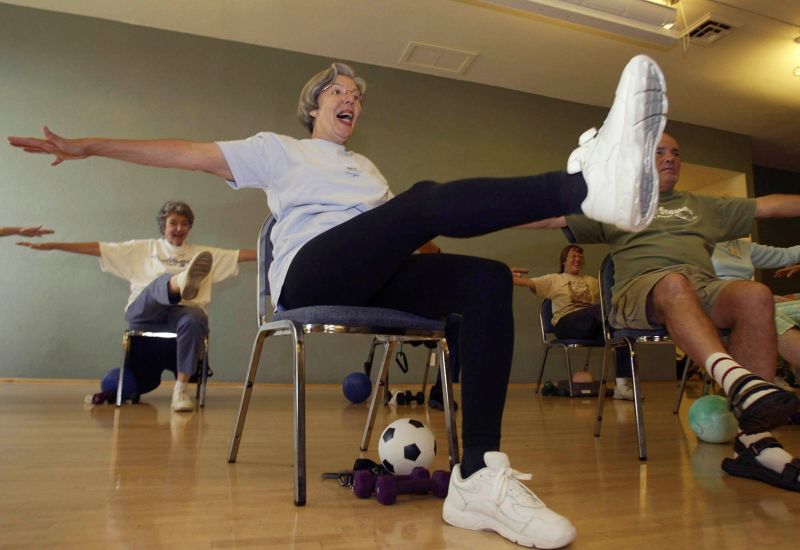In an abrupt reversal, the US Department of Health and Human Services said Thursday that it no longer plans to cut funding for the Women’s Health Initiative, a groundbreaking research project focused on preventing disease in older women. The move comes after a wave of concern and criticism about the threat to the longstanding study.
For decades, the initiative – conducted by the National Institutes of Health – has tracked the health of tens of thousands of women to understand how to reduce the risk of cancer, cardiovascular disease, osteoporosis and more in women after menopause.
Seminal findings from the project have included the risks of using certain kinds of hormone therapy for menopause – helping prevent an estimated 126,000 breast cancer diagnoses – and the finding that vitamin D does not help prevent bone loss. The work has led to more than 2,400 scientific publications overall, shaping clinical practice and public health policies across multiple disciplines in the US.
On Monday, the program announced that HHS planned to terminate contracts with its regional centers in September, a move that would “significantly impact ongoing research and data collection.”
Investigators were awaiting more details Thursday when an update from HHS indicated that plans had changed.
In a social media post Thursday, HHS Secretary Robert F. Kennedy Jr. said that “we are not terminating this study.”
“We all recognize that this project is mission critical for women’s health,” he wrote.
Experts say that cuts to one of the largest long-term studies on women’s health would be a critical loss, jeopardizing invaluable datasets and important studies already in the works.
“We already have serious gaps in women’s health that need to be addressed,” Dr. Stephanie Faubion, director of the Mayo Clinic’s Women’s Health Specialty Clinic in Jacksonville, Florida, and medical director for The Menopause Society, said when the funding cuts were announced.
The Trump administration has identified addressing chronic disease as one of its top priorities, and the Women’s Health Initiative has a unique ability to do that.
“When you compare a person to themselves over time, it allows you to much more definitively answer questions about the causes or the factors that contribute to the development of those kinds of diseases that we’re all worried about, whether it’s heart disease, cancer, dementia, diabetes, fractures, things like that,” said Dr. Rebecca Thurston, a prominent women’s health researcher. “It’s the ability to follow a large number of people over time.”
The launch of the Women’s Health Initiative in 1992 marked a major shift in the way medical research regarded women, experts say.
“For many years, we thought about women as essentially small men when it came to many chronic diseases,” Thurston said.
There had been a prevailing view that women’s health was only about “bikini medicine,” focused on reproduction and the areas of the body that a bikini covers, she said.
“I think the Women’s Health Initiative, and subsequently other studies, have really underscored that things like cardiovascular disease, stroke, dementia and brain aging, they have unique features in women and unique contributors,” Thurston said. “That means that we really have to study women specifically, that they’re not interchangeable with men, and that women’s health is more than bikini medicine.”
The historical lack of inclusion of women in medical research is why funding for a project like the Women’s Health Initiative is so important, said Dr. Stella Dantas, president of the American College of Obstetricians and Gynecologists.
“WHI centers have become a source of invaluable data and drive research on treatments to address some of the most common health concerns for postmenopausal women, such as heart disease and breast cancer,” she said in a statement.
Thurston says that some major findings from the Women’s Health Initiative were being published at a formative time in her career and led to the work she does now, researching menopause, cardiovascular disease and brain aging.
“This study has been answering really important questions on really prevalent health issues,” she said. “We need to keep the science going. It’s so important if we want to prevent heart disease, prevent cancer, keep our bones healthy, keep our brains healthy. We need to be doing this research.”

